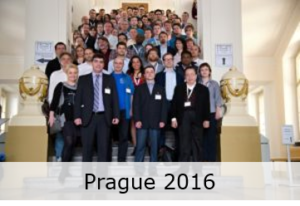Workshop Focus: The 3rd joint EARSeL-NASA LCLUC Workshop will focus on water, food and sustainability research supported by Earth Observations and derived remote sensing products. The workshop will address innovative research on the relationships amongst natural processes (e.g. biogeochemical and hydrologic cycles) and social/behavioral processes (e.g. decision making and governance) as supported by remote sensing observations. Land-use change with an emphasis on forests and watershed management, urban areas flooding and water consumption, arable lands irrigation and combatting drought will be some of the topics presented at this workshop. Remote sensing provides means to quantify land-use/cover changes and together with socio-economic information helps our understanding of land-use change and their associated drivers, impacts and sustainability.
Background: The UN FAO (United Nations Food and Agriculture Organization) in its State of the World’s Land and Water Resources for Food and Agriculture (2014) confirmed that “land and water resources are central to agriculture and rural development, and are intrinsically linked to global challenges of food insecurity and poverty, climate change adaptation and mitigation, as well as degradation and depletion of natural resources that affect the livelihoods of millions of rural people across the world.” They also projected that food production will need to increase by 70 percent to feed the world’s growing population. Land and water resources are already under heavy stress from economic development, so that future agricultural production will need to be more efficient and sustainable. Land use is undergoing changes in many parts of the World and there is considerable interest in understanding the impacts of those changes and whether they are sustainable.
There have been a number of meetings and published reports on the Sustainable Development Goals (SDGs) adopted by the United Nations and on the Water-Energy-Food (WEF) nexus, which is one of the organizing contructs of the Future Earth global research platform. Land-use change is pervasive in many regions with major implications for the WEF and is integral to the SDG’s. Satellite data can play an important role in providing up-to-date information in support of these initiatives, for example by providing underpinning data sets or monitoring progress towards the SDGs.









